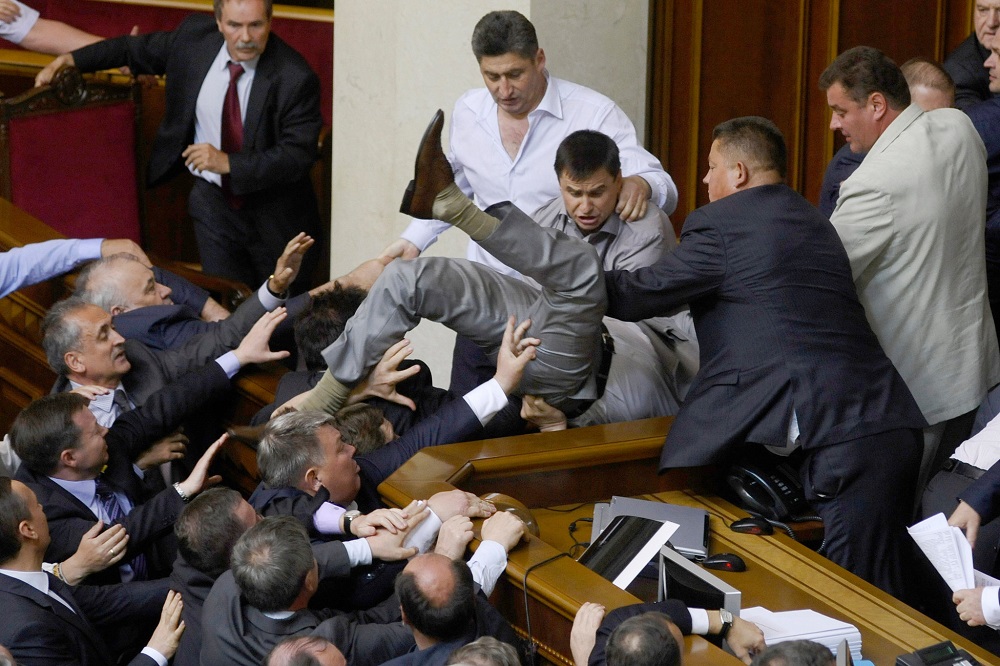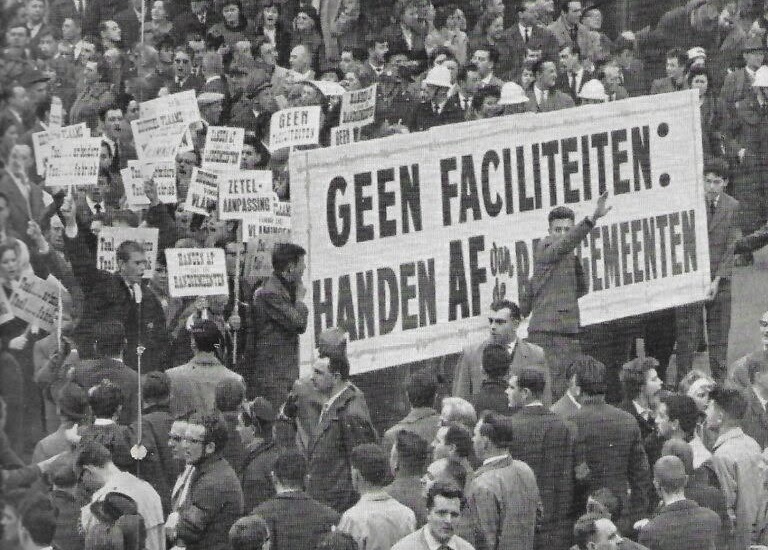From to Ukraine to Flanders, Québec or Catalonia, weaker languages need to fight if they are to survive.
Philosopher Philippe Van Parijs reflects on current events and debates in Brussels, Belgium and Europe
“How would France react if Belgium were to prohibit the use of the French language?”, asked Russia’s foreign minister Sergei Lavrov on French television? Yes, Mr Lavrov, France might have invaded when Napoleon was in power. But not now.
This is what is called the progress of civilization, of which European integration is a part. Yet, Mr Lavrov has a point, relevant to both Belgium and Ukraine.
The last significant moment of language-related violent clashes in the streets of Brussels goes back to the early 1960s: two massive marches gathering over 100,000 Flemings. Their demand: the abolition of legislation that made French co-official with Dutch in Flemish municipalities as soon as 30% of their population declared themselves French-speaking.
Despite fierce Francophone opposition, the 1962 language law scrapped this provision and made Belgium’s linguistic borders immutable.
In 2012, Ukraine adopted a law that would allow Russian to be co-official, jointly with Ukrainian, in all provinces with at least 10% of Russian-speakers. Opposition to it was so intense that physical violence erupted in the Parliament.

In 2012, a fistfight erupted in the Ukrainian parliament during a legislative debate over Ukraine’s official language policy.
In 2014, after Euromaidan, the Parliament voted to scrap the law, and the Constitutional Court annulled it for good in 2018. Both this Ukrainian episode and the Belgian one illustrate how strongly speakers of a weaker language feel that tough measures are needed in order to prevent the gradual eviction of their language by a stronger neighbour.
In the same vein, Ukraine’s 2019 language law stipulates that any official language of the European Union can be used, next to Ukrainian, as a language of instruction in secondary schools — but not Russian. By way of background: according to the most recent reliable data that include Crimea and the Donbas (2010), Ukrainian and Russian are the declared native language of 65% and 33% of Ukraine’s citizens, respectively.
No wonder that the Venice Commission of lawyers mandated by the Council of Europe to assess minority rights considered this law “discriminatory”. And no wonder that Putin and Lavrov repeatedly speak of an “open war on Russophones and the Russian language”.
None of this makes the language issue more than a pretext for the invasion. But in Ukraine, like in Belgium, Spain or Canada, there can be no lasting pacification without a legal framework that both protects sufficiently the threatened language and can be regarded as fair even by those whose linguistic rights are restricted. On the day that guns finally fall silent, this too will need to be on the table.

